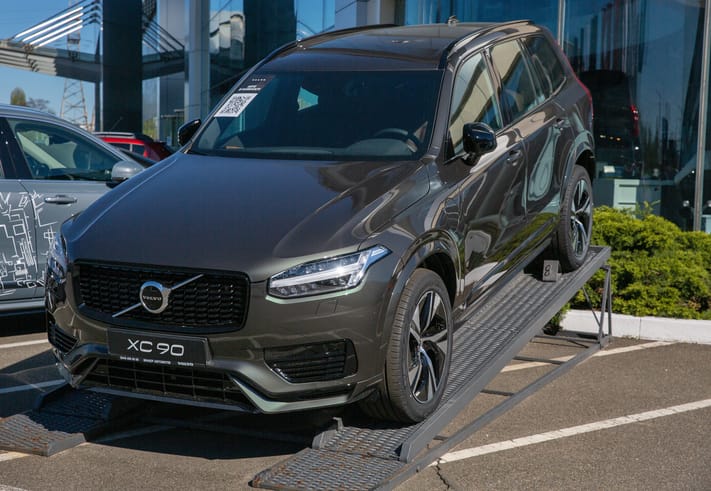The Future of Cars: Comparing Predictions from Past Decades to Current Trends

Crystal balls and time machines may be the stuff of fiction, but that hasn't stopped people from trying to predict the future of automobiles. Looking back at past predictions offers a fascinating glimpse into what people thought we'd be driving, and how those visions align with the trends shaping the cars of tomorrow.
Past Predictions: A Jetsons Dream (or Nightmare)
The 1950s and 60s were a period of booming optimism. Visions of the future often featured flying cars, nuclear-powered engines, and vehicles controlled by push-button or even telepathy. Popular culture, like "The Jetsons" cartoon, depicted a world where families zipped around in sleek, chrome-laden pods that hovered effortlessly above traffic.
These predictions, while undeniably cool, were wildly inaccurate. Technology simply wasn't there to support flying cars on a mass scale, and the environmental impact would have been catastrophic. Nuclear power, though explored in concept vehicles, proved impractical and dangerous for everyday use.
A Glimpse of Reality: From Automation to Efficiency
As the decades rolled on, predictions became more grounded. The 1970s saw a growing focus on automation, with ideas like automatic lane-changing and highway driving features. While fully autonomous cars are still in development, advanced driver-assistance systems (ADAS) like adaptive cruise control and lane departure warning are now commonplace, laying the groundwork for future self-driving vehicles.
The energy crisis of the 70s also spurred predictions of more fuel-efficient cars. This proved much more prescient. Today, hybrid and electric vehicles (EVs) are not just a niche market, but a rapidly growing segment of the automotive industry. Cars like the Toyota Prius and the Tesla Model 3 are testaments to the increasing efficiency and practicality of electric cars.
The Road Ahead: Electric, Autonomous, and Connected
Looking at current trends, three major themes are shaping the future of cars: electrification, autonomy, and connectivity.
- Electric Vehicles Take Charge: Concerns about climate change and air pollution are driving the shift towards electric cars. Governments are offering incentives for EV purchases, and battery technology is constantly improving, addressing range anxiety – a major concern for early EVs. Companies like Tesla, Nissan, and General Motors are all heavily invested in developing new and innovative electric vehicles.
- The Rise of the Machines (or Maybe Not): Self-driving cars are a hot topic, with companies like Waymo and Cruise testing autonomous vehicles on public roads. While fully driverless cars may still be a few years away, partially autonomous features like automated parking and highway driving are already available in some luxury cars. The ultimate goal is to create safer, more efficient transportation systems, but ethical and regulatory concerns around self-driving cars remain.
- Connectivity is King: The future car will be a rolling data center. Cars are becoming increasingly connected, with features like built-in Wi-Fi hotspots, real-time traffic updates, and integration with smartphone apps. This connectivity allows for features like remote diagnostics, over-the-air software updates, and even personalized in-car experiences.
Examples on the Road Today:
Several car models showcase the convergence of these trends:
- The Nissan Leaf: A pioneer in the mass-market EV segment, the Leaf offers a practical and affordable option for electric driving.

- The Tesla Model S: This luxury sedan redefined what an electric car could be, boasting impressive range, performance, and a tech-laden interior.

- The Volvo XC90 Recharge: This plug-in hybrid SUV combines electric power with a gasoline engine, offering versatility and efficiency for families.

- The Mercedes-Benz S-Class: A technological marvel, the S-Class features advanced driver-assistance systems and a luxurious, connected cabin.

The Unforeseen: What We Can't Predict
Predicting the future is inherently uncertain. Factors like advancements in artificial intelligence, alternative energy sources, and changing consumer preferences could all significantly impact the automotive landscape. Flying cars may still be a fantasy, but who knows what innovations the next few decades hold?
A Future Shaped by Innovation
One thing is certain: the future of cars will be shaped by innovation. The industry is moving away from the gasoline-powered, driver-controlled model towards a future that is cleaner, safer, and more connected. Whether it's gliding silently in an electric car or letting your self-driving vehicle handle the commute, the way we travel is on the cusp of a major transformation.
